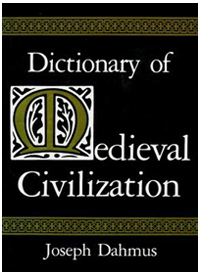From the....

Town
on the east of Ireland which served first the Norse, then the Anglo-Normans
as a stronghold and trading post. What assured its continuous growth was
its location within the English Pale, together with its commercial and
military importance. Edward III granted it the right to coin money, several
parliaments were held there, and it served as the seat of the primate
of Ireland during the Middle Ages. During the reign of Edward III it was
one of the four staple towns of Ireland.
Died
855, an illegitimate son of Charlemagne who became a monk, later bishop
of Metz. He cooperated with Louis the Pious in reforming the church and
from 843 served as the principal councillor of Emperor Lothair.
A
Shiite sect which appeared at the beginning of the eleventh century. Its
name derived from a certain al Darazi (d. 1019) who claimed that al-Hakim,
the sixth Fatimite caliph (996-1020), was really the incarnation of God.
Some Druzes continued to believe he was still alive.
City
on the east coast of Ireland, settled possibly as early as the third century
A.D. It was seized by the Norse in the ninth century and became the capital
of a Viking kingdom in the tenth. Anglo-Norman invaders captured the town
in 1170. Henry II came over in 1172 and held his court there and granted
a charter. During the medieval period Dublin served as a capital city
of the English Pale, a strip of territory on the eastern seaboard controlled
by the English.
Dudo
(Dudon)
Died
before 1043, author of a history of the first dukes of Normandy (to 996).
His account, written in alternate prose and poetry, constitutes a useful
source for the period despite its lack of objectivity and the introduction
of clearly imaginative events.
I'm
beginning to suspect that some people would be depressed if they weren't
being oppressed....
Written
in the States, this page gets civilization, not civilisation; and medieval
not mediæval.
It's
Shi'ite as far as I know, not Shiite. Either way it's not Shia.... and
Dudo's 'clearly imaginative events' were probably French victories.
